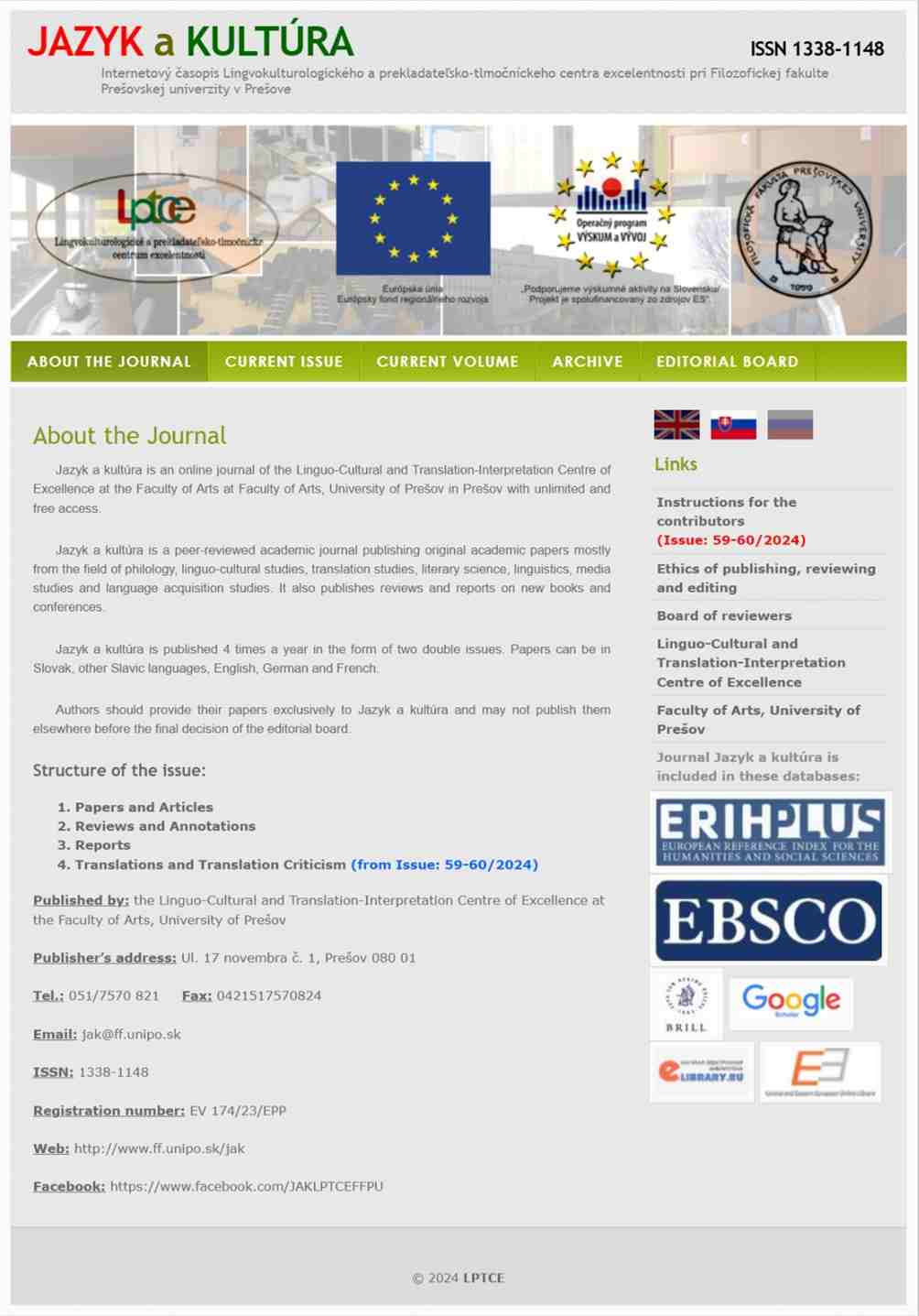Návrat k slovenskej recepcii Françoisa Villona
A New Look at the Slovak Reception of François Villon
Author(s): Ján ŽivčákSubject(s): Language and Literature Studies, Studies of Literature, Middle Ages, French Literature, Translation Studies, Theory of Literature
Published by: Lingvokulturologické a prekladateľsko-tlmočnícke centrum excelentnosti pri Filozofickej fakulte Prešovskej university v Prešove (LPTCE)
Keywords: medieval French literature; François Villon; reception studies; Jozef Felix; positivism and biographism; paratext
Summary/Abstract: Although autobiographic elements are not uncommon in pre-modern poetry, the identification of the lyrical I with the poet is an idea that only came into its own in the Romantic period, when poetry was definitively separated from voice, singing and recitation. Nevertheless, there are many medieval poets that have long been believed to write sincere effusions, despite the efforts of scholars to eradicate this prejudice. This fate also befell François Villon, a Parisian poet active around 1450. Positivist critics at the turn of the 19th and 20th centuries approached his poetry as an authentic confession and a mirror of his life. Their historiographic works, however, combined data from archival documents with textual clues from Villon’s The Legacy and The Testament which have never proven to be true. This eclectic method was vehemently opposed in the 1970s by a new wave of critics who shifted the focus from the context to the text itself. From their vantage point, Villon’s discourse is very likely not sincere, and his lyrical I should be seen as a persona in the medieval sense of the term rather than a double of the author. Against this historical backdrop, my paper focuses on the reception of François Villon in 20th-century Slovakia. In particular, I examine the forewords, glosses and commentaries appended to Slovak translations of Villon’s poetry by Jozef Felix, one of the most prominent Romance Studies experts in the former Czechoslovakia. In Slovak academic circles, Felix’s works on Villon have so far been perceived as exemplary, ever-relevant and visionary. My analyses, however, offer a more balanced conclusion, showing that Felix is more a child of his episteme than a visionary. Although his works, dating from 1947 to 1969, are written with incredible erudition and scholarly responsibility, they bear numerous marks of biographism. Felix sees Villon’s carnivalesque universe as a photography of late medieval Paris and insists on the authenticity of Villon’s art.
Journal: Jazyk a kultúra
- Issue Year: 14/2023
- Issue No: 55
- Page Range: 105-117
- Page Count: 13
- Language: Slovak

